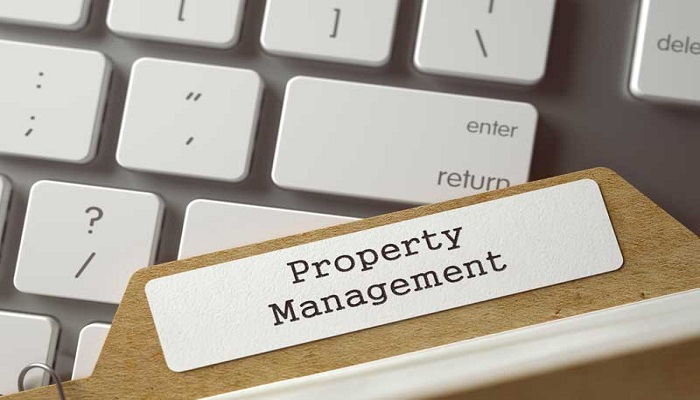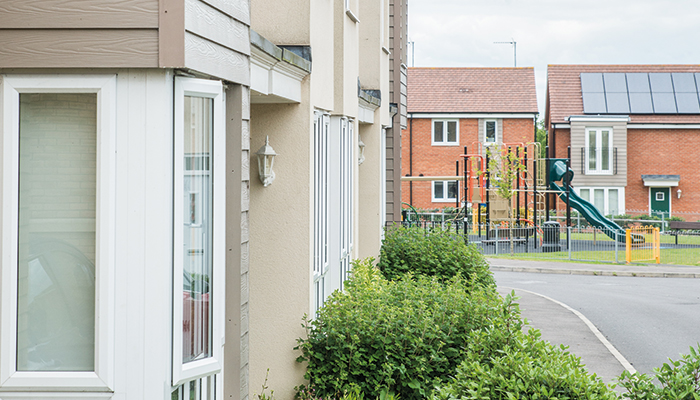Understanding the Basics of Property Management
What is Property Management?
What is property management? At its core, it’s the professional oversight of residential or commercial rental properties, often on behalf of a landlord. This includes managing everything from marketing the property and vetting tenants to handling repairs, inspections, and rent collection. It allows landlords to maintain a consistent income without needing to oversee the operational elements of the tenancy themselves.

The role exists to simplify letting. By centralising services into one point of contact, property management ensures compliance, upkeep, and communication are all managed smoothly. For those with demanding schedules or multiple investments, it removes the risk of missed legal obligations or time-consuming maintenance tasks.
The Role of a Property Manager in Modern Letting
A property manager acts as the landlord’s representative, balancing tenant satisfaction with operational efficiency. They serve as the main contact for tenants, resolve disputes, arrange repairs, and enforce tenancy agreements. In practice, they become the bridge between landlord and tenant, ensuring expectations are clear and consistently met.
As property legislation tightens and tenant expectations increase, this role has become more pivotal. A property manager doesn’t just react to issues — they proactively monitor for problems, track renewals, and keep everything legally sound. Their professional insight can prevent disputes before they arise.
Why Landlords Choose to Outsource Management
For many landlords, outsourcing property management is a practical decision. Time constraints, legal risks, and the complexity of maintenance coordination make DIY letting increasingly unappealing. Hiring a property manager transfers responsibility, reduces stress, and improves consistency in service delivery.
Those with larger portfolios or those letting from overseas often find the hands-off approach particularly useful. Rather than dealing with midnight callouts or tracking unpaid rent, they rely on a dedicated team that ensures the property performs financially while staying legally compliant.
Key Responsibilities of a Property Manager
Day-to-Day Operations and Tenant Liaison
One of the most immediate responsibilities of a property manager is managing communication with tenants. This includes handling routine queries, resolving issues, arranging access for contractors, and ensuring tenants understand their obligations. This ongoing liaison helps create a professional, well-maintained tenancy that benefits both parties.
In addition, property managers oversee daily administrative tasks. From renewing contracts to logging maintenance requests and ensuring up-to-date documentation, they maintain a consistent operational flow. This attention to detail ensures the property remains compliant and tenants remain informed.
Maintenance Coordination and Emergency Response
Organising repairs and scheduled maintenance is a critical part of property management. A good manager maintains relationships with reliable contractors to ensure issues are addressed promptly. Whether it’s a leaking tap or a faulty boiler, the ability to organise swift repairs keeps tenants safe and satisfied.
Beyond routine tasks, property managers are also prepared for emergencies. Burst pipes, break-ins, or loss of heating in winter demand immediate attention. A manager ensures a 24/7 response system is in place, reducing the landlord’s exposure to risk while protecting the tenant’s wellbeing.
Financial Duties, Rent Collection, and Budgeting
Rent collection sits at the heart of financial management. Property managers track payments, chase arrears, and issue formal notices where needed. This helps ensure reliable income for landlords and avoids disputes caused by unclear payment procedures.
In addition to income tracking, managers often oversee budgets for maintenance or service charges. They may advise on value-adding improvements, prepare financial reports, or liaise with accountants. This financial oversight ensures the property remains profitable and financially efficient.
Legal Compliance and Eviction Handling
Property managers are well-versed in housing regulations, which continue to evolve. From gas safety checks to deposit handling and right-to-rent compliance, they ensure everything is handled lawfully and on time. This protects landlords from penalties and maintains tenant safety.
When tenancies break down, the manager may oversee eviction proceedings. This includes serving appropriate notices, liaising with solicitors if required, and attending court if needed. Their experience in these matters helps prevent delays and ensures the process follows legal procedure.
Property Inspections and Reporting
Regular property inspections are another essential duty. These checks ensure the property remains in good condition, identify unreported issues, and document tenant care. Managers provide landlords with detailed reports that include photos and recommendations.
By spotting problems early, inspections prevent minor issues from escalating into costly repairs. They also support deposit disputes and confirm that the tenancy remains compliant with agreed terms. This routine monitoring offers landlords peace of mind.
Property Management in Practice
Property Management Lewisham: Regional Challenges and Expectations
Property Management in Lewisham, property managers face a blend of urban density and rising tenant demand. The borough’s diverse housing stock includes period conversions, new-build apartments, and Houses in Multiple Occupation (HMOs), each with unique management needs. Property managers operating here must navigate a fast-paced rental market while maintaining regulatory compliance.

The area’s popularity among young professionals and families means tenancy turnover can be high. A good property manager ensures smooth transitions between tenants, arranges timely repairs, and coordinates move-ins and inspections with minimal disruption. Their local knowledge helps them anticipate issues that are common in Lewisham’s varied housing scene.
Property Management Croydon: Local Market Trends and Demands
Property Management in Croydon, the role of a property manager is shaped by the borough’s ongoing regeneration. With new developments and improved transport links attracting renters, managers must respond to rising expectations while balancing cost and availability. Many landlords here invest in flats close to East Croydon Station or in expanding residential zones like Addiscombe and Thornton Heath.

Managing in Croydon often involves juggling new builds alongside older stock. This means understanding warranties, managing communal areas, and ensuring building-wide services are functioning correctly. A manager’s familiarity with Croydon’s council regulations and licensing requirements is critical to keeping properties compliant and competitive.
Managing Multiple Properties: How Scale Changes the Approach
The approach to managing one property differs significantly from handling a portfolio. Scale introduces additional complexity: maintenance scheduling becomes more structured, tenant communications are often centralised, and technology plays a larger role in oversight. For portfolio landlords, consistency across properties is key.
A property manager handling multiple assets often implements standard procedures for inspections, payment tracking, and contractor vetting. This allows them to deliver a consistent experience across locations while maintaining individual attention to each property’s needs. Efficiency becomes the priority, without losing focus on tenant satisfaction.
Tech and Tools Used in Efficient Property Oversight
Technology has changed how property management functions. Most managers now rely on specialist software to manage communication, rent collection, document storage, and compliance alerts. These tools automate repetitive tasks, minimise errors, and provide instant access to key information.
Some property managers also use apps that allow tenants to report issues or track maintenance updates in real time. This not only speeds up resolution times but also increases transparency. For landlords, having digital reports and instant updates offers greater visibility into property performance and peace of mind.
Why a Professional Manager Matters
Risk Reduction and Legal Protection
Property managers play a critical role in shielding landlords from legal and financial risk. By ensuring that a property meets all statutory requirements—from electrical safety checks to deposit protection schemes—they prevent costly mistakes and potential litigation. Their expertise allows them to act quickly when regulations change.
Evictions, non-payment of rent, and tenant disputes are also areas where legal knowledge is vital. A well-informed manager follows the correct legal channels, files documentation accurately, and keeps all parties updated. This careful handling protects the landlord’s interests and supports fair treatment for tenants.
Saving Time and Reducing Stress for Landlords
Letting a property is time-consuming. Property managers handle the tasks that would otherwise demand the landlord’s constant involvement—fielding tenant calls, booking tradespeople, managing contracts, and tracking compliance dates. This frees landlords to focus on other commitments, without sacrificing the quality of service delivered to their tenants.
The value isn’t just in saved hours but in reduced stress. Knowing there’s someone on call 24/7, capable of resolving issues promptly, means landlords avoid being drawn into day-to-day drama. They receive updates when needed and can trust that problems are being handled professionally behind the scenes.
Enhancing Tenant Satisfaction and Retention
A well-managed property often leads to happier tenants—and longer tenancies. Prompt responses to maintenance requests, clear communication, and proactive property upkeep contribute to a more positive rental experience. Tenants who feel valued are less likely to leave at the end of their agreement.
This tenant stability benefits landlords directly. Fewer void periods, lower advertising costs, and less wear from frequent move-ins and outs all add up. A professional property manager helps foster a living environment where tenants are more inclined to stay, pay rent on time, and take better care of the property.
Choosing a Property Management Company
What Does A Property Manager Do — Questions to Ask Before Hiring
Before selecting a property management company, it’s worth considering exactly what services are on offer. While most providers will cover the basics—rent collection, maintenance coordination, and legal compliance—the depth and quality of these services can vary. Asking detailed questions helps establish how well a manager aligns with the property’s specific needs. Questions should include: How quickly are maintenance requests addressed? What is the average tenancy length under their care? How do they handle arrears and evictions? This early due diligence can reveal whether a company operates reactively or takes a more strategic, preventative approach.
Landlords should also examine how the manager communicates, both with tenants and with themselves. Strong communication isn’t just about frequency—it’s about clarity, tone, and transparency. If a manager is difficult to reach during the onboarding stage or vague about their processes, it’s unlikely to improve once they’ve taken over the property. Asking for examples of reports, maintenance logs, or how they’ve resolved disputes in the past can give valuable insight into their working style and overall professionalism.
Comparing Local vs National Services
There’s a distinct difference between choosing a local property management provider and opting for a larger, national chain. Local managers often bring an intimate understanding of the rental market in areas like Lewisham or Croydon. They are usually well-versed in borough-specific licensing schemes, have direct access to vetted contractors nearby, and understand the tenant profiles common to each postcode. This can lead to quicker issue resolution, more tailored service, and better tenant relations overall.
On the other hand, national providers may offer broader resources, larger support teams, and access to proprietary technology platforms. While these tools can improve efficiency, they can also come at the cost of personalised service. Landlords may find themselves routed through call centres or speaking to multiple team members for a single query. Ultimately, the choice comes down to priorities: some landlords value a bespoke, hands-on approach, while others prefer scale and systemisation.
What to Expect from a Well-Managed Agreement
Once a management agreement is in place, landlords should expect structured communication, clear service boundaries, and measurable results. A well-managed contract outlines responsibilities for both sides, ensuring there’s no confusion about who handles what. Maintenance limits, tenant communication protocols, reporting timelines, and financial responsibilities should all be documented clearly. This transparency sets expectations early, reducing friction down the line.
Ongoing performance should be easy to track. Regular inspection reports, financial summaries, and updates on tenancy status are standard. A responsive property manager doesn’t just react—they keep landlords informed about upcoming renewals, legal changes, and opportunities for improvement. Over time, this consistent, proactive service adds value to the property and builds a reliable partnership based on trust and performance.
Frequently Asked Questions (FAQs)
What is property management in simple terms?
Property management is the professional oversight of rental properties. It involves everything from tenant screening and rent collection to maintenance and legal compliance, allowing landlords to stay hands-off while their property is managed efficiently.
What does a property manager actually do?
A property manager acts on behalf of the landlord. They handle tenant relations, arrange repairs, conduct inspections, manage finances, and ensure legal compliance—making sure everything runs smoothly from move-in to move-out.
Why should landlords consider property management services?
For landlords, especially those with multiple properties or limited time, landlord property management offers stress-free letting. It reduces legal risk, improves tenant satisfaction, and ensures consistent income.
What is a property management company and how is it different from an agent?
A property management company offers a full-service approach, handling not just lettings but ongoing operations. Unlike a letting agent who focuses mainly on finding tenants, management companies oversee the day-to-day running of the tenancy.
Are property managers responsible for legal compliance?
Yes. A property management property manager ensures the rental meets all local and national regulations, from safety checks and deposit handling to eviction protocols and licensing requirements.
What’s the difference between a residential property manager and a commercial one?
A residential property manager focuses on homes, flats, and HMOs, dealing with individual tenants and housing laws. Commercial managers handle offices or retail spaces and follow a different legal and operational framework.
How do property managers handle emergencies?
A reliable property manager coordinates 24/7 emergency response—whether it’s a burst pipe or broken heating—ensuring fast resolution and tenant safety, while protecting the landlord from risk.
How much does property management typically cost?
Costs vary, but landlord property management usually ranges from 8% to 15% of the monthly rent. Additional fees may apply for maintenance or legal support. However, many landlords find the value outweighs the cost.
Can I use property management services if I live overseas?
Yes, and in fact, many overseas landlords rely on property management companies to handle everything locally—from inspections to legal notices—without ever needing to be on site.
How do I choose the right property manager for my rental?
Look for local experience, clear communication, strong reviews, and detailed contracts. Ask questions about how they handle maintenance, arrears, and tenant relations. A good property management property manager will offer transparency and proactive service.